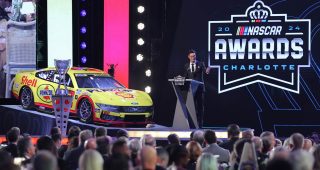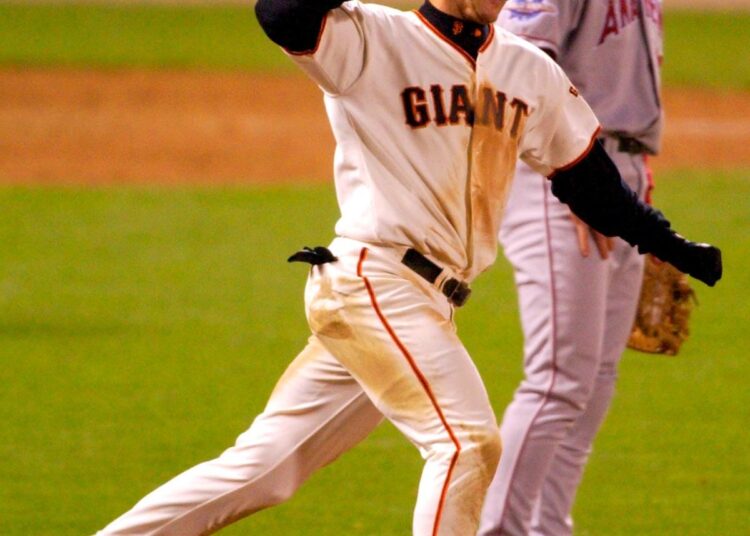Jeff Kent is considered one of the greatest power-hitting second baseman in baseball history.
However, that may not be good enough to get him voted into baseball’s Hall of Fame, which will be announced next Tuesday.
Kent is in his 10th and final year on the Hall of Fame ballot.
To some voters, he has a Hall of Fame résumé, while others still have questions about his 17-year career which included five All-Star appearances, four Silver Sluggers and a National League MVP award.
Kent’s career didn’t take off until he was traded after the 1996 season to the San Francisco Giants. Before landing in the Bay, he had pit stops with the Toronto Blue Jays, New York Mets and Cleveland.
HALL OF FAME: Carlos Beltran’s power, speed a rare combo, but sign-stealing scandal complicates case
HALL OF FAME: Gary Sheffield had a rare combination of power, plate discipline
NEVER MISS A MOMENT: Follow our sports newsletter for daily updates
During the 10-year stretch from 1997 to 2006, which included stints with the Houston Astros and Los Angeles Dodgers, he led all second basemen with at least 3,000 plate appearances in home runs, RBI, slugging percentage, OPS+ and WAR.
Some would consider that decade enough for a Hall of Fame career. In 2000, he was named the National League MVP over teammate Barry Bonds. Kent, who along with Bonds led the Giants to the NL West title, was the first second baseman to win the award since the Cubs’ Ryne Sandberg in 1984. He hit .334 with 33 homers and 125 RBI that season.
With such a colorful career behind him, USA TODAY Sports examines Kent’s case:
Why Jeff Kent belongs in the Hall
Let’s begin with the long ball.
Kent, a career .290 hitter, holds the all-time record for most home runs by a second baseman with 351 (out of 377). That’s more than Hall of Famers Ryne Sandberg (277), Joe Morgan (266) and Rogers Hornsby (265).
Then there’s his slugging percentage and OPS.
Among players with at least 7,000 plate appearances in their career who spent at least half their time at second base, only Hornsby (.577) has a higher slugging percentage than Kent (.500). Kent ranks third in OPS (.855) behind Hornsby (1.010) and Hall of Famer Charlie Gehringer (.884).
Kent also had over 20 home runs and 100 RBI in eight different seasons. Among second baseman, Hornsby accomplished that feat just five times while no other players did it more than four times.
Why Jeff Kent doesn’t stack up
Despite his prolific power numbers, Kent has a few marks against him.
He retired with a career WAR of 55.4, which is lower than many candidates on the current ballot. Plus, it doesn’t quite stack up to the average Hall of Fame second baseman’s career 69.5 WAR.
Kent was also a latebloomer in the big leagues. He was considered an average player at best for five seasons in the majors until he was traded to San Francisco and it wasn’t until he was 29 when his career started to blossom.
But what hurts his case the most was his lack of defense skills. He never won a Gold Glove and was considered a below-average defender. Plus, he led the National League in errors by a second baseman four different times.
Voting trends
This is Kent’s final year on the ballot. He managed to get to 32.7% last and would need a historic boost to make the 75% needed for induction. As of Jan. 17, he has been named on 49.4% of ballots publicly revealed and listed in Ryan Thibodaux’s Hall of Fame Ballot Tracker. Despite the uptick, the votes just aren’t it’s not looking favorable.
-
2014: 15.2%
-
2015: 14.0%
-
2016: 16.6%
-
2017: 16.7%
-
2018: 14.5%
-
2019: 18.1%
-
2020: 27.5%
-
2021: 32.4%
-
2022: 32.7%
Will Jeff Kent ultimately get in?
This is his 10th and final year on the ballot and the votes just aren’t there.
However, Kent should be a strong candidate when he’s eligible to be on the Contemporary Game Era Committee ballot for 2026.
This article originally appeared on USA TODAY: Hall of Fame: Jeff Kent hit more home runs than any 2B in history
Read the full article here
























